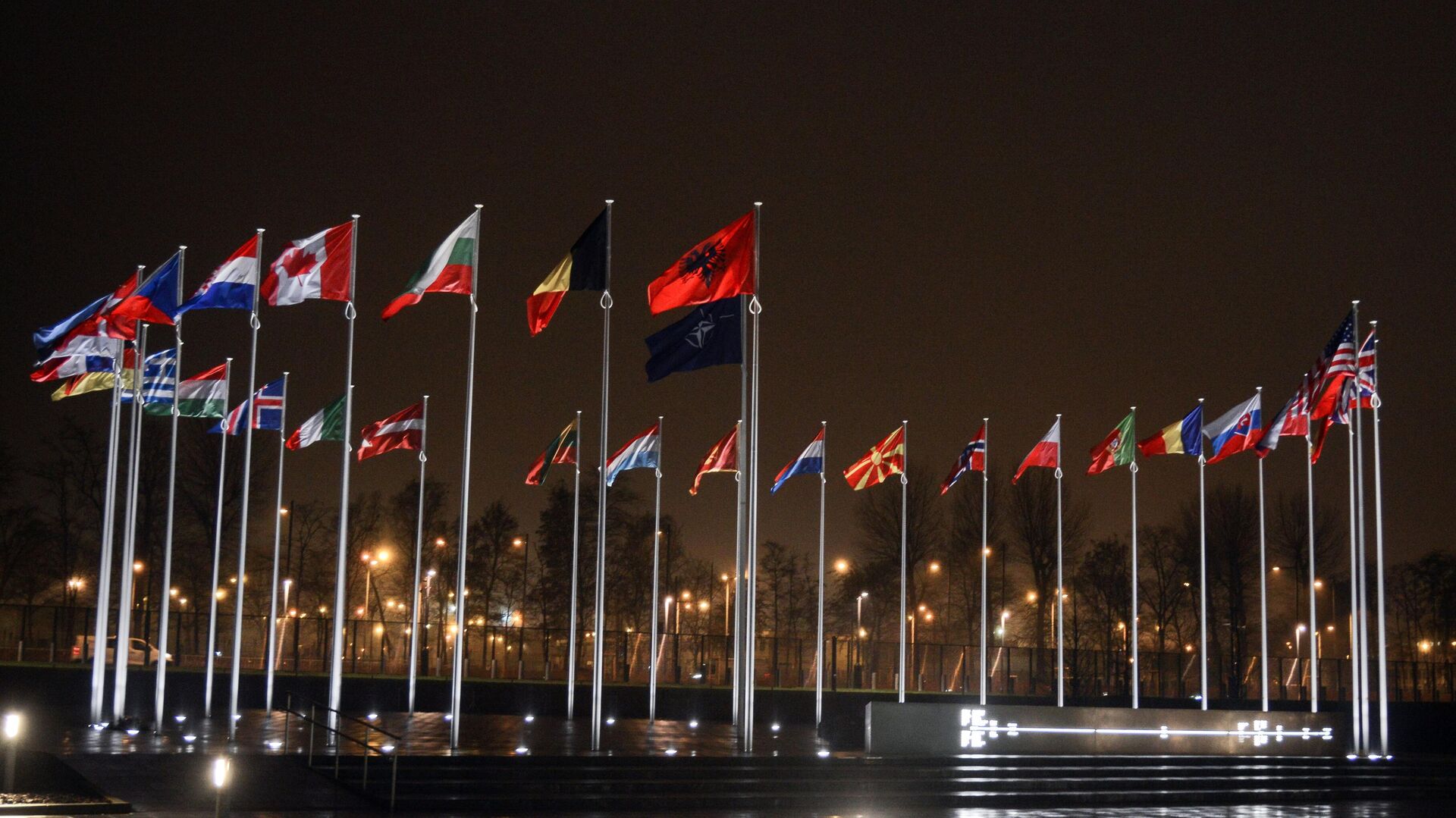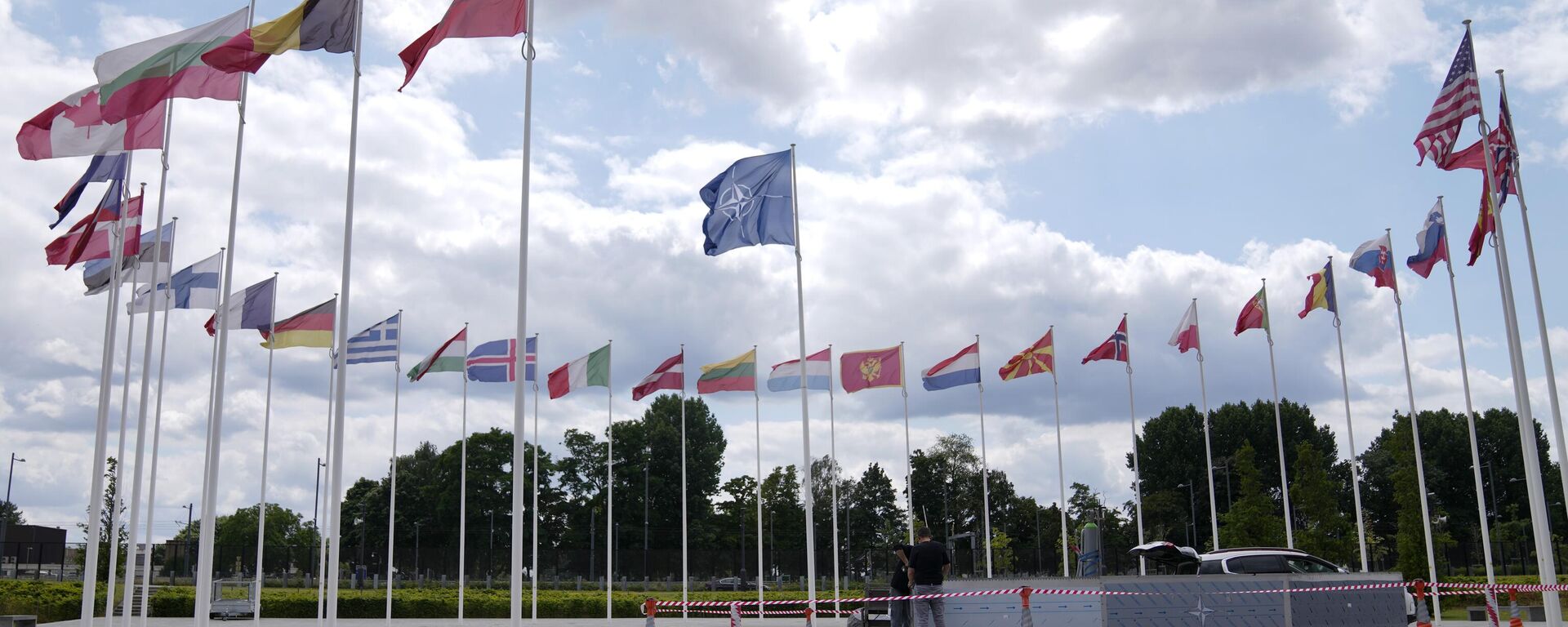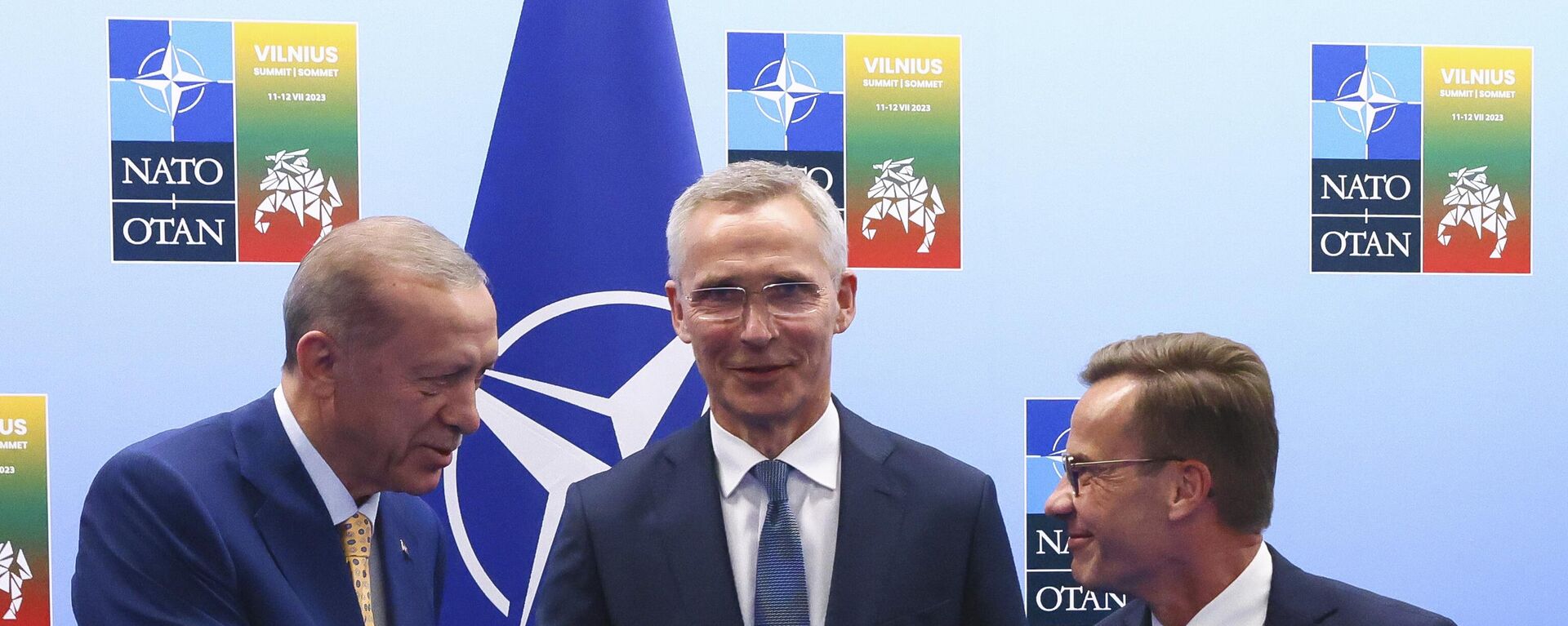https://sputnikglobe.com/20230711/malicious-poison-ex-australian-pm-slams-natos-push-to-expand-within-asia-1111803216.html
'Malicious Poison': Ex-Australian PM Slams NATO's Push to Expand Within Asia
'Malicious Poison': Ex-Australian PM Slams NATO's Push to Expand Within Asia
Sputnik International
Australia's former prime minister, Paul Keating, vehemently argued that NATO should maintain its original focus on the security of the Transatlantic region and cautioned against any attempts to limit China.
2023-07-11T00:38+0000
2023-07-11T00:38+0000
2023-07-11T00:36+0000
world
australia
nato
aukus
michael keating
jens stoltenberg
emmanuel macron
nato expansion
https://cdn1.img.sputnikglobe.com/img/07e7/01/06/1106089212_23:0:3664:2048_1920x0_80_0_0_4e5cd863ae4ba997c7e317d581c29dcb.jpg
Former Australian Prime Minister Paul Keating recently launched a scathing critique against NATO Secretary-General Jens Stoltenberg, labeling him a "supreme fool" for advocating for increased ties between the military bloc and Asia as a means to contain China's influence. Keating in a Sunday statement alluded to a US media report that claimed French President Emmanuel Macron blocked NATO's plans to establish a liaison office in Japan.The debate surrounding NATO's expansion beyond the North Atlantic intensified over the weekend, with US media reporting that an anonymous official from the Elysee Palace confirmed France's opposition to such expansion.The French official emphasized that NATO's official name, the North Atlantic Treaty Organization, clearly indicates its geographical limitations. Macron has consistently voiced his reservations about NATO's focus on China, stating the country "has little to do with the North Atlantic." Keating commended Macron for cautioning NATO against expanding into Asia, emphasizing the alliance's primary focus on Europe and the Atlantic.Expressing his concerns, Keating warned that NATO's very existence beyond the Cold War had already denied peaceful unity to Europe as a whole. He further argued that "exporting such 'malicious poison' to Asia would be akin to Asia welcoming the plague upon itself," and cautioned that NATO's presence in the region would undermine the significant progress it has made in recent years.The former prime minister emphasized that Asia's recent development should not be compromised by associating with the militarism of Europe, especially when China represents a significant portion of humanity and boasts the world's largest economy. He added, that "China has no record of attacking other states, unlike the United States, whose bidding Stoltenberg is happy to do."Directing his criticism towards NATO's secretary general, Keating described Stoltenberg as a "supreme fool" on the international stage, and accused him of behaving like an "American agent." Keating cited Stoltenberg's previous statement in February, where he called for the West to avoid repeating the "mistake" made with Russia and instead focus on containing China.In response to the controversy, a Chinese Foreign Ministry spokesperson, Mao Ning, advised NATO against extending its geopolitical reach into the Asia-Pacific region. The spokesperson emphasized the region does not welcome bloc confrontation or military alliances.As the debate over NATO's role in Asia continues, Keating's strong condemnation of Stoltenberg and NATO's push for increased ties with Asia serve to highlight the deep divisions and concerns. The official's remarks come at a crucial time when current Australian Prime Minister Anthony Albanese heads to Germany and looks to participate in the NATO's Lithuania summit to discuss potential increased support for Ukraine. Keating, a prominent figure within the Labor Party, has been a vocal critic of the AUKUS security alliance, which aims to acquire nuclear submarines to potentially counter China.
https://sputnikglobe.com/20230710/ukraines-accession-to-nato-to-have-negative-consequences-for-european-security---kremlin-1111789387.html
https://sputnikglobe.com/20230710/stoltenberg-erdogan-has-agreed-to-forward-swedens-nato-bid-to-parliament-1111798921.html
australia
Sputnik International
feedback@sputniknews.com
+74956456601
MIA „Rossiya Segodnya“
2023
News
en_EN
Sputnik International
feedback@sputniknews.com
+74956456601
MIA „Rossiya Segodnya“
Sputnik International
feedback@sputniknews.com
+74956456601
MIA „Rossiya Segodnya“
paul keating, will japan join nato, nato asia expansion, new nato members, australia nato relations, will nato act against china, aukus bloc
paul keating, will japan join nato, nato asia expansion, new nato members, australia nato relations, will nato act against china, aukus bloc
'Malicious Poison': Ex-Australian PM Slams NATO's Push to Expand Within Asia
Australia's former prime minister, Paul Keating, has vehemently argued that NATO should maintain its original focus on the security of the Transatlantic region and cautioned against any attempts to limit China.
Former Australian Prime Minister Paul Keating recently launched a scathing critique against NATO Secretary-General Jens Stoltenberg, labeling him a "supreme fool" for advocating for increased ties between the military bloc and Asia as a means to contain China's influence.
Keating in a Sunday statement alluded to a US media report that claimed French President Emmanuel Macron
blocked NATO's plans to establish a liaison office in Japan.
The debate surrounding NATO's expansion beyond the North Atlantic intensified over the weekend, with US media reporting that an anonymous official from the Elysee Palace confirmed France's opposition to such expansion.
The French official emphasized that NATO's official name, the North Atlantic Treaty Organization, clearly indicates its geographical limitations. Macron has consistently voiced his reservations about NATO's focus on China, stating the country "has little to do with the North Atlantic." Keating commended Macron for cautioning NATO against expanding into Asia, emphasizing the alliance's primary focus on Europe and the Atlantic.
"Doing the world a service, Macron reminded all and sundry of NATO's Atlantic design and focus," Keating underscored.
Expressing his concerns, Keating warned that NATO's very existence beyond the Cold War had already denied
peaceful unity to Europe as a whole.
He further argued that "exporting such 'malicious poison' to Asia would be akin to Asia welcoming the plague upon itself," and cautioned that NATO's presence in the region would undermine the significant progress it has made in recent years.
The former prime minister emphasized that
Asia's recent development should not be compromised by associating with the militarism of Europe, especially when China represents a significant portion of humanity and boasts the world's largest economy. He added, that "China has no record of attacking other states, unlike the United States, whose bidding Stoltenberg is happy to do."
Directing his criticism towards NATO's secretary general, Keating described Stoltenberg as a "supreme fool" on the international stage, and accused him of behaving like an "American agent." Keating cited Stoltenberg's previous statement in February, where he called for the West to avoid repeating the "mistake" made with Russia and instead focus on containing China.
In response to the controversy, a Chinese Foreign Ministry spokesperson, Mao Ning, advised NATO against extending its geopolitical reach into the Asia-Pacific region. The spokesperson emphasized the region does not welcome bloc confrontation or military alliances.
As the debate over NATO's role in Asia continues, Keating's strong condemnation of Stoltenberg and NATO's push for increased ties with Asia serve to highlight the deep divisions and concerns.
The official's remarks come at a crucial time when current Australian Prime Minister Anthony Albanese heads to Germany and looks to participate in the
NATO's Lithuania summit to discuss potential increased support for Ukraine. Keating, a prominent figure within the Labor Party, has been a vocal critic of the
AUKUS security alliance, which aims to acquire nuclear submarines to potentially counter China.




